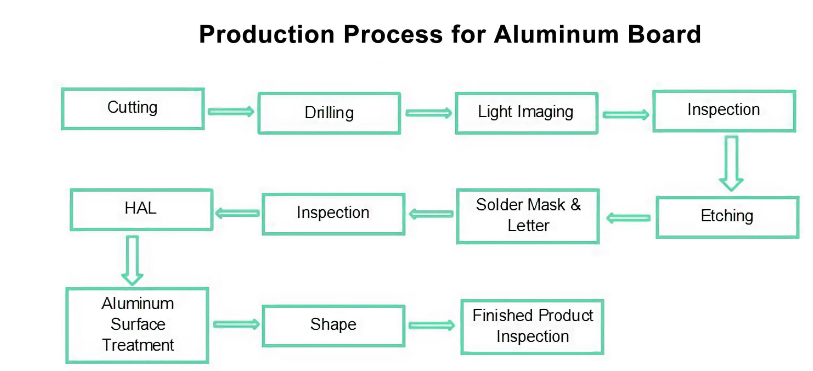Advantages of aluminum-based PCBs over conventional FR-4 material PCBs
Date:2023-05-22 14:00:52
Aluminum-based PCB is a circuit board that uses an aluminum substrate as a carrier. Compared with conventional FR-4 material PCBs, it has many advantages, such as high thermal conductivity, excellent heat dissipation, and reliability. In this article, we will explore these advantages of aluminum-based PCBs over conventional FR-4 material PCBs, and discuss where aluminum-based PCBs are more suitable.
1. The thermal conductivity of aluminum-based PCB is very good. The aluminum base is an excellent thermal conductor, which transfers heat from the board to the surrounding environment quickly and efficiently. In contrast, conventional FR-4 material PCBs take longer to transfer heat away due to their lower thermal conductivity, which can lead to overheating, failure or damage to the board. Therefore, it is more appropriate to use aluminum-based PCBs in devices that require high-power applications or require long-term operation.
2. Aluminum-based PCB has excellent heat dissipation performance. When heat is generated in the circuit board, it is absorbed by the aluminum substrate and dissipated into the surrounding air. Compared with conventional FR-4 material PCBs, aluminum-based PCBs have better heat dissipation and can more effectively prevent circuit boards from overheating. Therefore, aluminum-based PCBs are a more reliable choice in situations where long runs are required or high-power applications are required.
3. Aluminum-based PCB also has high reliability. The aluminum-based PCB uses an aluminum substrate as a carrier, which is very strong and corrosion-resistant, while the conventional FR-4 material PCB is relatively fragile and easily damaged. In addition, aluminum-based PCB can also provide better fire performance, because the aluminum substrate is very fire-resistant, which can effectively prevent the circuit board from catching fire or igniting. These advantages allow aluminum-based PCBs to be more widely used in applications that require high reliability or need to prevent fire.
In summary, aluminum-based PCBs have many advantages over conventional FR-4 material PCBs, including high thermal conductivity, excellent heat dissipation, and reliability. Aluminum-based PCBs are a more suitable choice where high-power applications are required, long-term operation is required, high reliability is required, or fire protection is required. With the continuous development of technology and increasing market demand, aluminum-based PCB will be more widely used and developed.

